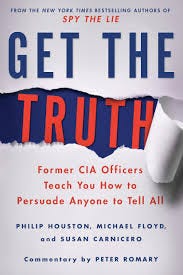Seduce the whole world
Part 1: Sex, sales, charity
Part 2 here.
Haninani we likes to party
I don’t have a lot of hot takes to offer these days but I love the art of the take. It’s one of the reasons I can never get all that mad at Richard Hanania. His craft is so obviously in another world from his detractors that it makes it hard for me to legitimate some of their critiques, which seem less sophisticated or thought-out than his and therefore less appealing to engage with (even if they’re right).
Gribbles Derangement Syndrome
Glenn or should I say “Glenn” has been diligently plugging away at his listserv for homosexual crustacean-advocates for some time now and I’ve mostly let his nonsense go unremarked upon save for my constant reply-guying and occasional restacking wherein I vie for little bits of his attention from across these
I should know. I used to work in sales, specifically in gyms. I wouldn’t mention this if there weren’t a flattering angle here, which is that I made tons of money doing it, but also because I want Richard Hanania to know he is the preferred Substack author of General Managers and Membership Directors everywhere. Name-Tag Americans are his strongest soldiers.
So instead of peddling another sarcastic listicle on why whatever bad thing that’s happening is actually good, I’m going to write some pieces on persuasion, which is a component necessary to selling good and bad takes alike. Just because I never made it from Panda Express to law school, doesn’t mean I can’t argue someone into the ground.
Here’s my first go at it with a pretty broad post. Here’s why I think rationalist and effective altruist arguments often fail on an aesthetic level. But before you commit to reading this whole thing, you can listen to a short clip of me describe one of my signature closes to see if I’m really as good as I say I am:
How we convince ourselves
Back when I worked in corporate America, people were always trying to get me to read fast-food religious books like Growth Mindset, EQ, Grit: The Power of Passion and Perseverance, not to be confused with The Power of WHY, and anything by Eckhart Tolle. These books are probably less useful than any of the Dale Carnegie cannon, which I’ve also never read and am not going to.
While I’m not exactly Mr. Popular all the time, largely owing to antisocial traits that expose themselves on a long enough timeline, I worked in sales and have the receipts (USD) that I can be extremely popular when the incentive to be so meets the criterion that I not be asked to perform for too long. I’ve not only written records in my timeline, but have set all-time national sales records against which the entire history of all employees at a given company (that’s right, bitch) must judge themselves. From this you can extrapolate that I’m extremely popular running my mouth across a short timeline, selling high volume. In fact, even though I myself am a cat guy, many men who like cats dislike me for the fact that many women turn themselves into cats when I am around. It’s called magnetism and guys who lack it hate it.
One place I agree with my haters: I’m high in dark triad traits and have a certain natural charisma. I’m not even that good-looking, but I’m confident and good at persuasion. Basically, I never had much interest in reading these kinds of books because I’ve always had an intuitive sense, that while much of what institutions push is useful (washing your hands will help you avoid disease, too much vulgarity will get you ostracized etc.), mixed in with these somewhat obvious truths are items designed to make you more compliant, less unique, and less agentic in ways that disproportionately favor their interests and often work counter to your own; the magic is in selling these “virtues” as either in your interest or at least for the greater good but never as part of more naked corporate interests or transactionalism. You’re not supposed to read Growth Mindset because it will make you a more malleable cog in a soulless stonk machine, you are supposed to read it because it will help you manifest an increased credit limit with American Express but more importantly will make those with company equity richer. My position is not so much that a company should not try to get as much out of you as it can; my position is that trying to class it up in self-care aesthetics and stripmall yoga culture makes me want to die in a senseless war.
Add in an additional layer of high openness and high disagreeableness and you get an image of me as a somewhat contrarian-type fellow. While I don’t set out to be contrarian (at least I’ve always maintained this idea), if I begin to reason out my position and then play it back to myself, I wonder if I’m not coping or if it’s possible most people who are contrarians don’t think of themselves as such, which is exactly how we fool ourselves.
Being that I am this contrarian corporate reject, it’s not only that I just didn’t read the books you’re supposed to read, I also read not-entirely naughty, but slightly strange selections from an anti-reading list in my head as though I was going to access some kind of forbidden knowledge about how the human psyche operates. Well, as cringe and unlikely as it sounds, I have to say, open Clive Barker-type portals and you find Clive Barker-type shit.
One such book I read was Get the Truth: Former CIA Officers Teach You How to Persuade Anyone to Tell All. You might ask, what does this have anything to do with sales?
Step 1. Read this not that well-written or interesting book on nonviolent interrogation techniques written by the bards at the Central Intelligence Agency.
Step 2. ?????
Step 3. Net $17,000 income during a month-long hot streak.
How we convince others
I’m being a little cheeky here but buried in this not-that-interesting or well-written book is some real gold. First off, it gives you pretty good pointers on being able to tell if someone is deceiving you. I say, “deceiving” because you don’t necessarily have to lie to deceive people. The main way the book hips you to the call signs of a smoke screen is by giving you a short list of ways in which you can taxonomize them. Once you are aware of them, you can identify them when you see them. There’s basically only three, if I recall, and everything else derives from those three.
Being able to tell when someone is blowing smoke is useful in life but also in sales. For instance, if someone says they need to check with their husband/wife, knowing when this might be a legitimate condition you need to be sensitive toward and when they are telling you to eat dicks in space, can be useful for knowing how much time to spend on them, whether you are actually a persuasive/good salesperson, whether people are comfortable just telling you no or that you suck, and many other painful insights more people should consider.
But I’m more interested in discussing the real breakthrough insight the book gave me. It’s this: The key to getting truthful confessions, useful information, sex, or money out of people with currently antagonistic relationships to you is getting them out of long-term thinking and into short-term thinking. An obvious, more materialistic example of this would be knowing that a person may not want to rat someone out for fear or facing inevitable retribution or having to look over their back all the time but also knowing that they are a caffeine and nicotine junkie, and that the longer they go without either, the more they may be willing to play ball for a quick fix. Another more nuanced example might include getting someone to shift their focus away from their inevitable incarceration and towards the emotional and physical feelings a guilty conscience bestows, how confessing now will only alleviate it; whereas continuing to hide will only intensify it.
These are more extreme high-stakes examples, but even if you are selling a gym membership, especially if you are working on the Upper East Side such as I was, you are basically walking into an antagonistic relationship with many ladies of the Amy Wax variety, who make Karen’s look like children and men look like eunuchs. They can turn your penis into rubble with just a quick look. You have something they want but they want to pay less for it than your bosses will allow you to accept. In religion, this is called getting them to make a leap of faith, in capitalism, it’s called sales. You need them to mute all that utilities and groceries noise in their head and cough up some shekels for your commission if you want to make converts of them.
What the book does not say to do is to tell your prospect/detainee how you’re super duper smart and, even though you know they did it, you also need them to tell you how they did it or else. Because after “or else” comes it won’t matter whether you’re smart or what you know. You wouldn’t threaten them if they saw a reason to do it anyway. Smart, correct people don’t need other people to participate in their rituals for them to get their way in life. Making your enemy participate in your fantasy may humiliate them or make you feel good but if you can get them to choose to participate of their own volition, you can actually have a productive relationship in which you will be less likely to fear their information is low-quality, further deceptive, or that you will have to continue watching your back in the future. Remember, I don’t want to sell you a gym membership and have you hate me. You are going to burn a bunch of my tours and make my life hell. I need to you to want to do it or you will basically MeToo my reputation but for business instead of sex. You’re going to tell everyone and make my life hell.
One might think that the person who best understands ideas would be the best to promulgate them but this is not so.
Inspiring lions
I bring all of this up to say that I have seen a lot of very weak, flaccid argumentation from intelligent people who write articulately about well-researched topics, some of which they must inevitably be right about and yet, so much of their writing leaves me unstirred and apathetic. One moment they are calling their enemies unfeeling and sociopathic. The next they are hitting them with facts x logic. Why, if you want them to feel, would you hit them with statistics and charts? They act like the Tinman in Wizard of Oz and wonder why they can’t inspire Lions.
If you think about it, persuasion displays the same skill present when picking someone up at a bar or (off the subway), and it’s the same skill present when making a sale. To be persuasive with ideas is to sell ideas. One might think that the person who best understands ideas would be the best to promulgate them but this is not so. In sales jobs, you will regularly see less intelligent, savory, or pulled-together people outwriting you. You will tell yourself they are cheating, or that their prospects are getting fooled but is it really the case that your enemy is getting exclusively easy-to-deceive gullible dullards while you get tossed grenades1 all day? If this is the case, then perhaps you should begin imitating your dumb, sloppy coworker so that you might be more persuasive and at least get results. In reality, were these prospects able to speak to both of you, they would most likely not be fooled by which of you were the smarter-sounding, more articulate person, meaning they are not buying from your coworker because they value his intellect so much. They are buying from him because they find his approach more palatable, which is to say they find yours less so.
Now, if your mental model requires that they educate themselves or become more discerning consumers or that a substantial portion of the human race begin reacting to you in a completely different way than seems compatible with human nature, then you are not so persuasive. It doesn’t matter how correct you are if no one believes you.
Altruism is a term one uses when one wants to seduce others into doing the thing they wanted them to do anyway.
Making a convert
One reason Global Warming™ may have had a relatively successful run capturing attention and dollars owes to its time-bound warnings of imminent destruction resulting from rising sea levels. While it turns out we have eclipsed many of the alleged dates by which Miami would be as wet as Cardi B’s pussy, at least there was a sense that if you ignore the problem, the problem will refuse to ignore you. Similarly, one reason immigration reform is currently historically popular with both republican and democrat voters is a sense that if immigration is not curbed now, it will have lasting impact soon and for the rest of American history. People look at their streets and they look at increased illegal immigration and whether they are as causal as many argue, enough people accept the argument for it to be powerful. For immigration to be a salient issue, it no longer needs a deadline to matter; for some people, every day is pressing.
Whether these sentiments are logical or not, compare them to the causes of shrimp welfare or reinstating PEPFAR. The urgency, the thing that converts someone from long-term thinking about taking money away from their mortgage, savings account, or even investing in another night out with a potential wife, and getting them into short-term thinking that gets them to dedicate irrevocable, nonrefundable resources towards something now, it’s conspicuously missing. I’m not saying that cutting PEPFAR funding won’t cause deaths. I’m saying it won’t change anything about the lives of the people you plead your case to and the more time and attention they need to give to earning money, preparing food, their own health issues etc., the more your righteous cause will lose out to doomscrolling and Yum Brands. Yes, Taco Bell is more urgent for 99.9% of the population than shrimp pain even when they admit shrimp pain is bad.
To make it short, if you want to get your thing done, you need to seduce people and get them to care by showing why they should care in an accessible way. Sure, you can narrowcast to rich, super-intelligent people who just so happen to not have the money you need tied up in anything else that interests them. You can also try to be likable, cut it with all the nagging, stop accusing people of being unfeeling while you yourself bore them to death with statistics and pedantic hypotheticals.
It’s not that statistics don’t matter but that you need to learn to teach through story, which is both more memorable and more impactful. Maybe experience life a little first and figure out how to weave the kinds of experiences many people (not just autistic nerds) have into a package that also involves some data, something compelling.
But one thing is increasingly obvious, you don’t call yourself a rationalist or effective altruist because you are particularly rational or particularly effective. You call yourself a rationalist because you are incapable of romancing your audience, in the way that no one says they are going to introduce you to their ugly friend, just their friend with a “nice personality.” You call yourself effective because you misunderstand what altruism is. You think it is a mistake that in practice altruism rarely lives up to its nominal charge when, in fact, altruism is a term one uses when one wants to seduce others into doing the thing they wanted them to do anyway, give them prestige and money. They are able to pose a metonymy between making the donation and feeling good in a way that doesn’t even require words. Like buying Girl Scout cookies, the magnetism is so strong it actually feels wrong not to give into it. Both parties are down. You get delicious treats and The Girl Scouts of America take your money and blow it on Lisa Frank. Everyone wins.
In fact, there’s only one better outcome from casual consensual conversation than commerce and that’s sex. And while it’s a good idea to get consent for sex, many reasonable people would like to make rationalists and effective altruists seek consent before saying what they think. For many, it could be an upgrade.
However, if you adhere to either rationalism or effective altruism, rather than complaining about seduction techniques you think are invalid (charm, wit, pith, flirting, de-emphasizing tedium), if you actually care, if you actually want to see your vision of the world enacted, you should learn to use these techniques to better effect than your opponents can. If you think you’re actually right and you care, you’ll make an attempt rather than stating that the world would be okay if everyone just listened to you.
Part 2 here.
In sales a “grenade” refers to a sales prospect who is as likely to give you a good outcome as catching a grenade with no pin.










Swashbuckling analysis, just how I like it, and fully worth the attention I paid for it. Good deal.
The cardi b line made me laugh out loud and almost shoot tequila through my nose